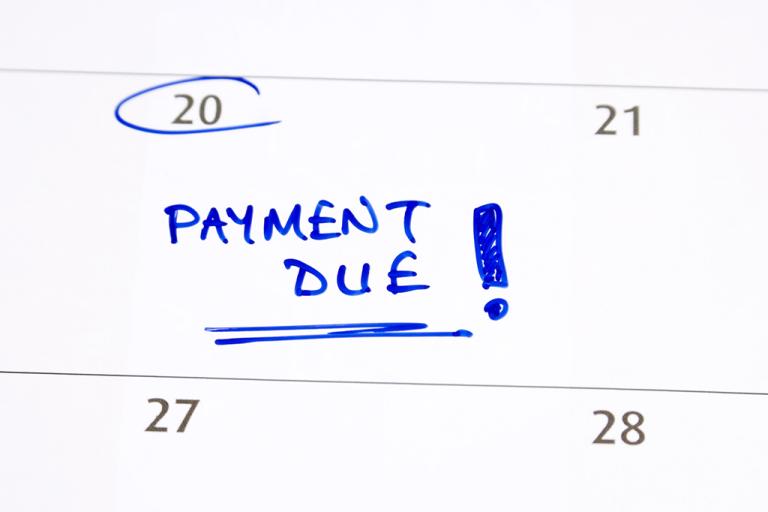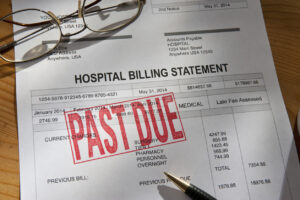On this page
What's next
Earn a high-yield savings rate with JG Wentworth Debt Relief
Everything You Need to Know About Buy Now, Pay Later Services
by
JG Wentworth
•
February 22, 2023
•
5 min

The information on this blog is provided for educational and informational purposes only. Such information or materials do not constitute and are not intended to provide legal, accounting, or tax advice and should not be relied on in that respect. We suggest that you consult an attorney, accountant, and/or financial advisor to answer any financial or legal questions.
In the last few years, you’ve probably noticed an increase in “buy now, pay later” (BNPL) options for your online purchases.
These services became especially popular during the pandemic, when people started spending more of their money with online retailers. According to a study by The Ascent, more than half of consumers have used a BNPL service.
While these services make it easier to buy more expensive consumer goods and pay them off over time, it’s also easy to lose track of your BNPL purchases and repayments. In fact, 44% of BNPL users say they’ve missed a payment.
So what is BNPL—and what are the risks of using it?
What is buy now, pay later?

Buy now, pay later services are short-term, low- or no-interest credit products that allow people to finance purchases at the point of sale.
You may have noticed an option at checkout for paying off your purchase in installments the last time you went on an online shopping spree; many online retailers partner with BNPL companies to encourage customers to buy more. Some brick-and-mortar stores are starting to offer BNPL as well.
BNPL has become increasingly popular because you can finance everyday purchases easily and quickly, usually with a great introductory interest rate offer. You can use BNPL for everything from concert tickets to hotels, to a new cell phone or that pair of shoes you’ve been eyeing.
How does buy now, pay later work?
In order to decide whether you’re fit to take out their short-term loans, BNPL services run a soft credit check after asking you for a few personal details, such as your SSN and your address.
If approved, you’ll pay off your purchase over an agreed period of time. Because many BNPL services offer low- or no-interest loans, it’s possible that you won’t incur any fees or interest paying off your purchase.
If it sounds like interest-free credit would be a great way for these companies to lose money, you’re right. That’s why many BNPL services rely on missed payments for revenue, as well as merchant fees.
Related Article: A Guide to Everything You Want to Know About Credit
How is buy now, pay later different from credit cards?

Whereas credit cards are a type of revolving credit—that is, you can continuously borrow money as you need it—BNPL acts more like installment credit, where you receive your money up front and pay it off in set installments over time.
Generally, credit cards come with higher interest rates than BNPL loans. But credit cards also allow you to make smaller payments on your purchases—that is, whatever the required minimum payment is on your card—over a longer timeframe. Plus, credit cards often allow you to rack up points or miles on select purchases.
Related Article: 4 Strategic Ways to Use Credit Cards
Pros and cons of buy now, pay later services
Pros
- BNPL is a great alternative payment method for people who don’t have credit cards but need to finance a purchase
- BNPL offers low or no interest for on-time payments
- You get a set repayment schedule, so you can budget your repayments out
- BNPL services run a soft credit check, not a hard one, which doesn’t damage your credit score
Cons
- Paying for items in installments could enable more impulsive spending and spending beyond your means
- BNPL encourages you to take out credit for any purchase
- Late payments might be subject to high interest rates—often higher than typical credit card rates!
- Repayment terms are usually shorter, with larger installments
- BNPL services don’t report on-time payments to credit bureaus, so you won’t build credit—but they do report late payments
Controlling your debt with JG Wentworth

One-third of consumers who have used BNPL loans say they have used credit cards to pay off their loan balances. In other words, they’re taking out higher-interest credit to pay off their low- or no-interest credit on time. So in the end, is BNPL even worth it?
If you, like many BNPL users, find yourself saddled with too much high-interest credit card debt, JG Wentworth could help you find a solution. We could help you resolve your debt** or get a debt consolidation loan*—whichever works best for your unique situation—so you can put your debt behind you.
Sources cited
- Backman, M., & Caporal, J. (2022, July 18). Study: Buy now, pay later services growing quickly among U.S. consumers: The Ascent. The Motley Fool. Retrieved from https://www.fool.com/the-ascent/research/buy-now-pay-later-statistics/
- Accrue Savings. (n.d.). The Savings Scene. Retrieved from https://assets-global.website-files.com/62712ea283308274ffa808f1/62df96d65b11fa55e5dc6835_AccrueXDecode_M-PDF.pdf
- Kleinbard, M., & Udis, L. (2022, June 15). Buy now, pay later and credit reporting. Consumer Financial Protection Bureau. Retrieved from https://www.consumerfinance.gov/about-us/blog/by-now-pay-later-and-credit-reporting/
- What is buy now, pay later (BNPL)? Shopify. (2022, November 4). Retrieved from https://www.shopify.com/blog/buy-now-pay-later
- Kulp, P. (2022, July 22). Buy now, pay later industry is tested as inflation bites. Adweek. Retrieved from https://www.adweek.com/commerce/buy-now-pay-later-industry-flux-inflation-potential-recession/
- When it comes to money, no one is being honest: 85% of gen Z and 83% of millennials admit to pretending all is well with finances in front of family and friends. Business Wire. (2022, July 26). Retrieved from https://www.businesswire.com/news/home/20220726005397/en/When-It-Comes-to-Money-No-One-is-Being-Honest-85-of-Gen-Z-and-83-of-Millennials-Admit-to-Pretending-All-is-Well-with-Finances-in-front-of-Family-and-Friends
Want to learn more about your debt options?
Fill out your info and we’ll be in touch!
About the author
Recommended reading for you
*JGW Debt Settlement, LLC d/b/a JG Wentworth (“JG Wentworth”) has partnered with MoneyLion to provide this loan referral service. JG Wentworth is not a lender and cannot ultimately decide whether or not you are approved for a loan. JG Wentworth does not determine or influence the amount of money you may receive from using this referral services.
**The debt resolution program is provided by JGW Debt Settlement, LLC. JGW Debt Settlement, LLC is licensed/registered to provide debt resolution services in states where licensing/registration is required. Debt resolution program results will vary by individual situation. As such, it may not be suitable for all persons. JG Wentworth does not offer debt resolution services in all states and fees may vary from state to state. Not all debts are eligible for enrollment. Not all individuals who enroll complete our program for various reasons, including their ability to save sufficient funds. Savings resulting from successful negotiations may result in tax consequences, please consult with a tax professional regarding these consequences. The use of debt relief services can potentially have an adverse impact on your credit rating, may result in you being subject to collections, and may result in other adverse action by creditors or collection agencies. Read and understand the program contract prior to enrollment. JG Wentworth does not pay or assume any debts or provide legal, financial or tax advice or credit repair services. You should consult with independent professionals for such advice or services. Please consult with a bankruptcy attorney for more information on bankruptcy. JGW Debt Settlement operates in the following states: AL, AK, AZ, AR, CA, CO, FL, ID, IN, IA, KY, LA, MD, MA, MI, MS, MO, MT, NE, NM, NY, NC, OK, PA, SD, TN, TX, UT, VA, DC, and WI. If a consumer in CT, GA, HI, IL, KA, ME, NH, NJ, OH, RI, SC and VT contacts us we may connect them with a law firm that provides debt resolution services in their state.







